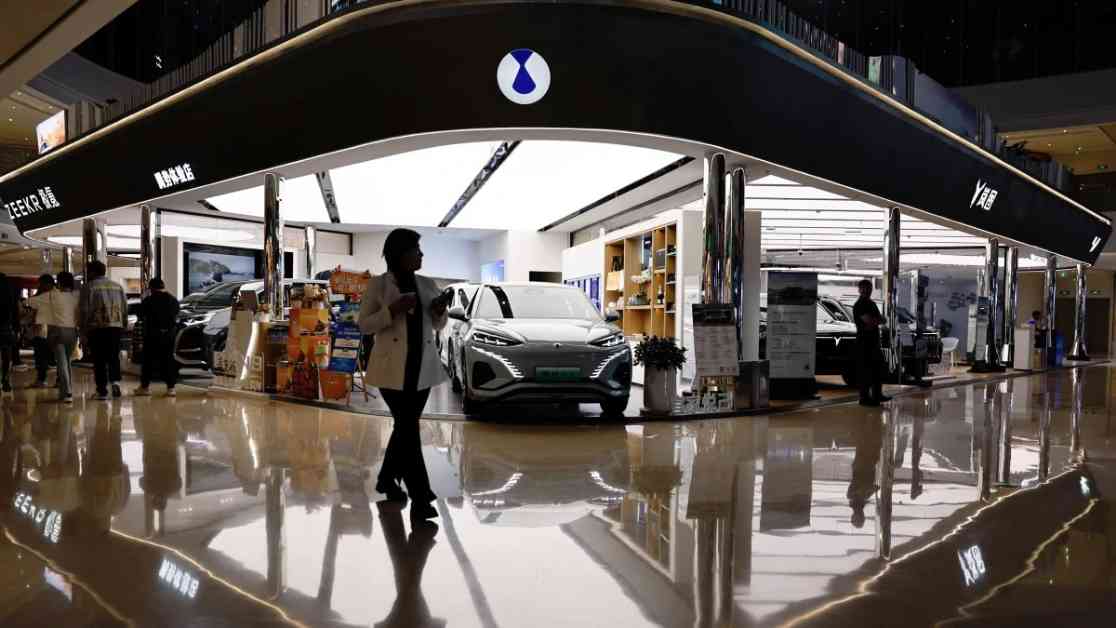China’s auto market is making significant strides in the adoption of electric vehicles (EVs) and hybrids, with half of all vehicles sold in July falling under this category. This milestone highlights China’s leadership in EV adoption compared to Western countries.
The data from the China Passenger Car Association (CPCA) shows that sales of new energy vehicles (NEVs) increased by 37% last month compared to the previous year, accounting for a record 50.7% of car sales in July. This is a significant jump from just 7% of total vehicle sales three years ago.
China’s heavy investments in EV supply chains have propelled the growth of the domestic EV industry, leaving many foreign brands struggling to keep up. In contrast, the United States only saw electric and hybrid vehicles account for 18% of sales in the first quarter of this year.
The growth of NEVs in China has been accelerating, with sales of pure electric vehicles increasing by 14.3% in July. This solid growth has helped local brands like BYD and Li Auto achieve fresh monthly sales records.
Despite the success of NEVs, overall domestic car sales in China have declined by 3.1% for the fourth consecutive month. This decline is attributed to weak consumer confidence amid economic struggles, particularly in the property market crisis.
To boost the auto market, China’s state planning agency announced in late July that cash subsidies for vehicle purchases would be doubled, up to 20,000 yuan ($2,785) per purchase. Some cities, including Beijing, have also relaxed restrictions on car purchases to stimulate demand.
The price war among domestic brands is easing as automakers focus on protecting margins. This shift is expected to bring further stabilization to the market in August and September, according to the CPCA’s secretary general Cui Dongshu.
China’s top EV firm BYD has continued to offer discounts in July, albeit less intensively than in the first half of the year. The company offered a price reduction of up to 17.3% on the hybrid SUV BAO 5 under its off-road Fangchengbao lineup at the end of July.
While vehicle exports from China rose by 20% year on year in July, the growth rate has slowed compared to the previous month. This slowdown is attributed to China-made EVs preparing for provisional EU tariffs, according to Cui.
Overall, China’s auto market is experiencing a shift towards EVs and hybrids, with strong government support and increasing consumer interest driving this transition. Despite challenges in the broader economy, the future looks promising for the EV industry in China.










